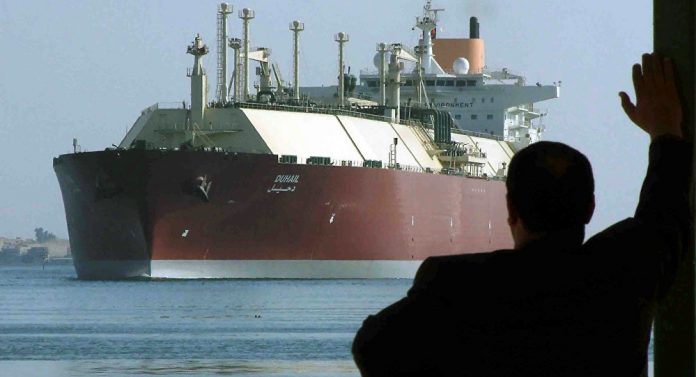
Not by Gazprom Alone? How Germany's Embracing LNG in a Bid to Reduce Dependence on Russian Gas
Sputnik International 15:11 November 25, 2019
In a bid to diminish dependence on Russian natural gas Germany is embracing liquefied natural gas technology (LNG), while at the same time preparing to benefit from the Gazprom-led Nord Stream 2 project.
The German government’s efforts to gain energy independence though diversifying its gas supplies is gradually taking shape with Minister President of Lower Saxony Stephan Weil planning to embark on an official visit to Qatar in late November to discuss liquefied natural gas (LNG) supplies.
Merkel Goes for Diversification of Energy Supplies
Following mounting criticism from the US over Berlin's involvement in the Gazprom-led Nord Stream 2 project, in March 2018 German Chancellor Angela Merkel signalled a readiness to build up a liquefied natural gas industry in a bid to reduce the country's dependence on Russian pipeline gas.
To that end Germany is now considering four options:
· German LNG GmbH (Brunsbüttel, Hamburg);
· LNG Wilhelmshaven terminal – Floating Storage Regasification Unit (FSRU);
· LNG Stade GmbH;
· Rostock LNG GmbH.
The four LNG import terminals could receive 635 billion cubic feet of natural gas by 2023, according to the Houston Chronicle, envisaging that Germany may become a prospective energy market for US LNG producers especially given that Berlin is planning to shut down all of its remaining coal power plants by 2038.
Germany, meanwhile, is also looking for other, less distant suppliers of the super-chilled fuel.
Qatar Ready to Supply & Invest in Germany's LNG Terminals
In September 2019, German Ambassador to Qatar Hans-Udo Muzel, praised the upcoming tour of two high-level delegations from Germany to the Arab nation with proven natural gas reserves of approximately 25 trillion cubic metres calling the LNG terminal project "vital for Germany".
Given that one of the LNG terminals may be built in Stade, a small town in Lower Saxony, Stephan Weil's Qatar tour takes on new significance. Weil is seeking to enhance cooperation with Qatar doubling down on promoting LNG projects despite numerous expert warnings about negative climatic and environmental consequences, as well as financial risks.
According to The Peninsula, an English language Qatari daily, if Weil's talks with Doha prove successful, German companies will be purchasing LNG directly from Qatar. Additionally, the peninsular Arab country's energy giant Qatar Petroleum may also invest in new LNG terminals in Germany.
About one year ago, the world's largest LNG exporting company, Qatar Petroleum, made it clear that it is interested in investing in Germany's LNG endeavours. In Novermber 2018, Qatar's Ambassador to Germany, Saoud Bin Abdulrahman Al Thani, visited a potential construction site in Jade Bay, Wilhelmshaven.
Earlier, in September 2018, Qatar inked a long-term contract for LNG import capacity with Germany’s energy giant RWE, which considers the development of a potential LNG site in Brunsbüttel.
Canada's Super-Chilled Fuel as Germany's Source of Energy
Apart from Qatar, Germany regards Canada's super-chilled fuel as yet another source of energy. In 2013, Germany's Uniper, the country's largest utility, concluded a 20-year deal with Canada's Pieridae Energy for 5 million tonnes of hydrocarbons a year produced by its first train.
To that end Pieridae is going to build an LNG export terminal on Canada’s East Coast having recently purchased gas fields from Royal Dutch Shell. The Goldboro LNG terminal is set to compete with the US Gulf Coast's liquefied natural gas industry due to its shorter distance to Europe which would help it cut LNG shipping costs.
According to the CBC, in 2018, the German government offered Pieridae $4.5-billion in loan guarantees for the project which reportedly envisages the delivery of "non-frac" gas in the first train. There are a lot of concerns that "fracking" technology based on injecting water and chemicals underground to release natural gas is fraught with dramatic environmental risks.
Nord Stream 2 to Become Operational in Mid-2020
While the completion of reception terminals in Germany and Pieridae's exporting terminal is an issue for the distant future, the Gazprom-led Nord Stream 2 is expected to become operational in the middle of 2020, as Deputy Prime Minister Dmitry Kozak outlined on 21 November.
On 30 October, Denmark finally gave the green light to the pipeline project. The country's permit removed the last hurdle in the path of the 1,230-km-long pipeline under the Baltic Sea connecting Russia to Germany. For its part, Germany's Bundestag approved amendments to a law governing the Nord Stream 2 gas pipeline on 13 November in order to make it compliant with the EU's Gas Directive.